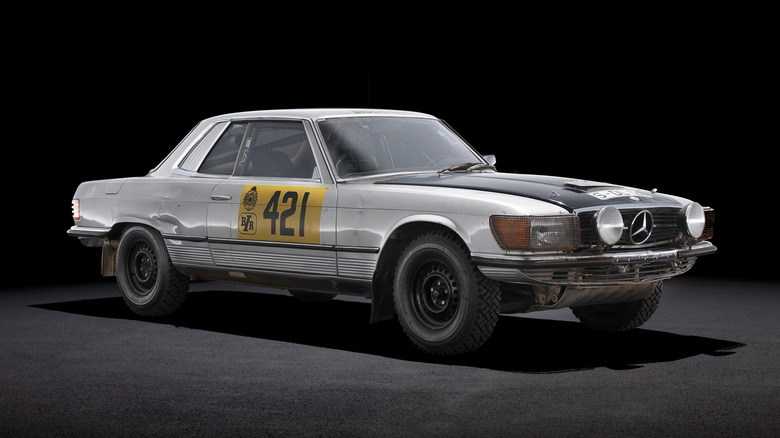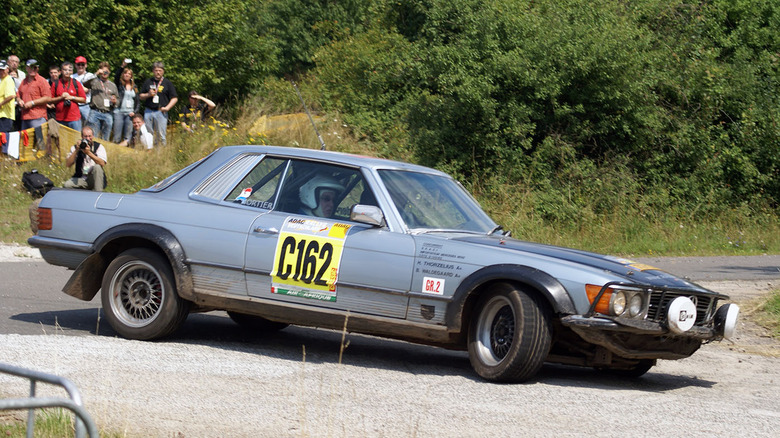The Classic Mercedes Rally Car That Tackled Some Of The World's Toughest Terrain
In the almost 140 years since Karl Benz first stuck a two-stroke engine on a steel tricycle and called it a car, the company bearing its name has had all sorts of adventures. Mercedes-Benz has been a going concern for the best part of a century and a half. In that time, they've done just about everything: Creating masterclass luxury in the Electric Age, gravel-devouring race platforms, and the occasional literal robot car. Mercedes has done everything.
All that said, whoever first thought of throwing a Mercedes onto a rally track with a roll cage and a prayer deserves extra credit for the audacity. Mercedes-Benz is still primarily a luxury car brand; engineers tend to favor chauffeuring moneyed customers through the nightlife of beautiful Stuttgart over flinging lunatics sideways through axle-deep dirt.
Still, the Rallyewagen happened. Starting in 1977, Mercedes spec'd up an SLC coupe to World Rally Championship standards and released it into the wild.
A masterpiece in the muck
According to Top Gear, Mercedes wasn't exactly betting the mortgage money on rally success. The company built just 19 rally-ready SLCs prior to their racing debut in 1979. At the same time, they came dressed to win. In addition to new lights and improvements to chassis safety, Mercedes rebuilt the coupe's plant to maximize power-to-weight ratio, delivering an all-aluminum, 5-liter V8 and replacing several body panels with the lighter metal.
The redesign paid off. The SLC's chief claim to fame is an extraordinary 1-2-3-4 finish at the 1979 Bandama Rally in Cote d'Ivoire. The top rally team was Björn Waldegård and Hans Thorszelius, the same duo that took a stock Porsche 911 to the podium in Kenya the previous year. Clearly, if your professional remit calls for taking a German thoroughbred through hours of filthy, punishing rally racing, those two are the gentlemen to call.
Those 19 SLCs were the only Mercedes-Benz rally cars of their kind. After their early successes, the Rallyewagens were retired to use as training vehicles, then sold into private hands.
[Featured image by Rennstreckenderwelt via Wikimedia Commons | Cropped and scaled | CC BY-SA 3.0]

